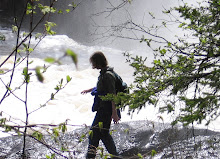This week in three subjects--Geography, Science, and Bible--we are studying the desert. The English word "desert" comes from a Latin root that means "abandoned, deserted." Though deserts are often teeming with life incredibly adapted to their extreme temperatures and dry climate, we often view them as empty--deserted. Sometimes we view ourselves that way, also--deserted. Though things are not always what they seem, loss of things or people valuable to us, whether temporary or permanent, can leave us feeling abandoned and empty.
Loss is a universal experience. But whatever we're losing, we can't compare and weight each other's losses. Maybe we're losing our health, or our wealth; maybe it's our freedom, or rights; or maybe we're losing loved ones to college, marriage, moving, or death. Maybe we're losing a "favorite," such as when my son takes his father's favorite old Lay-Z-Boy recliner with him to college, or when the manufacturer quits making our favorite cleaning sponge or bubble bath (Far, that one's for you! ;~p). Sometimes we endure a whole season of loss, like the year Beth Moore's daughter moved to college, her best friend moved out-of-state, AND her favorite coffee shop quit serving her favorite bagel! A few years later, our season of loss looked different--we lost our church fellowship of seven years and had 16 different friends and family members either die or become critically ill in one year...
We can't compare losses because we each have and value different things at different times; but we can empathize and agree that loss is often uncomfortable and insecure, breeding more questions than answers. And isn't it our first instinct to resist it? And isn't it hard to watch our loved ones endure it? Yet as I've studied God's Word and walked through times of personal loss, I've gradually gained hope, resource, and even treasure from desert times. For some people, discomfort and unresolved questions are proof enough that there must not be a God (for surely a warm fuzzy, loving, all-powerful God would not allow such preventable pain). I have found, though, that God actually calls us "into the desert," using times of loss for purposes as unimaginably wonderful as they are real.
Though I would not make a religion of it, God's Word gives evidence that He does some incredible things in the desert. For instance, in the seemingly empty nothingness of the desert, He:
- provided a ram for Abraham;
- pursued and commissioned the runaway, Moses;
- formed, sustained, and trained His chosen nation for 40 years;
- provided intimate provision, rest, and ministry to the prophet, Elijah;
- raised up John the Baptist to prepare the general population of the time for His Son;
- and led His Son to encounter and overcome His enemy's temptations with truth--God's Word.
Yes! The desert is not barren, but teeming with life! Plants and animals that live there have been given incredible tools for survival! Likewise, the desert times in our lives are not as forsaken as they seem; rather, they are places where we can press our loss into the heart of God and completely depend on Him for our survival. And what treasure we can reap!

















1 comment:
Interesting!...and for you...
"love is the one who masters all things."
Mawlãnã Rumi.
Post a Comment